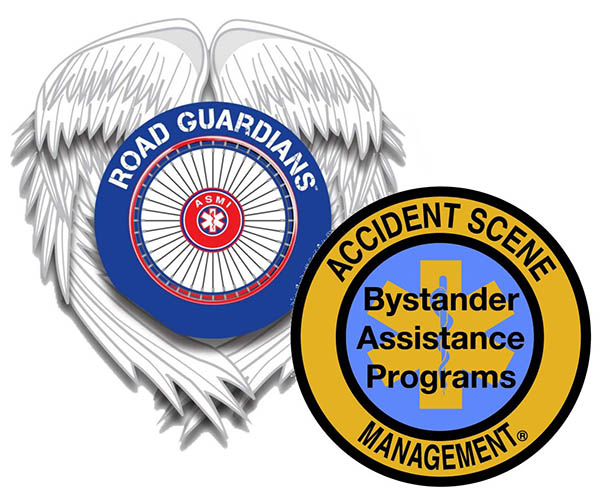Accident Scene Management / Road Guardians
Login |
(262) 706-3278
0
You have 0 items in your cart
Sec. 52-557b. “Good samaritan law”. Immunity from liability for emergency medical assistance, first aid or medication by injection. School personnel not required to administer or render. Immunity from liability re automatic external defibrillators. (a) A person licensed to practice medicine and surgery under the provisions of chapter 370 or dentistry under the provisions of section 20-106 or members of the same professions licensed to practice in any other state of the United States, a person licensed as a registered nurse under section 20-93 or 20-94 or certified as a licensed practical nurse under section 20-96 or 20-97, a medical technician or any person operating a cardiopulmonary resuscitator or a person trained in cardiopulmonary resuscitation in accordance with the standards set forth by the American Red Cross or American Heart Association, or a person operating an automatic external defibrillator, who, voluntarily and gratuitously and other than in the ordinary course of such person’s employment or practice, renders emergency medical or professional assistance to a person in need thereof, shall not be liable to such person assisted for civil damages for any personal injuries which result from acts or omissions by such person in rendering the emergency care, which may constitute ordinary negligence. A person or entity that provides or maintains an automatic external defibrillator shall not be liable for the acts or omissions of the person or entity in providing or maintaining the automatic external defibrillator, which may constitute ordinary negligence. The immunity provided in this subsection does not apply to acts or omissions constituting gross, wilful or wanton negligence. With respect to the use of an automatic external defibrillator, the immunity provided in this subsection shall only apply to acts or omissions involving the use of an automatic external defibrillator in the rendering of emergency care.
Nothing in this subsection shall be construed to exempt paid or volunteer firefighters, police officers or emergency medical services personnel from completing training in cardiopulmonary resuscitation or in the use of an automatic external defibrillator in accordance with the standard set forth by the American Red Cross or American Heart Association. For the purposes of this subsection, “automatic external defibrillator” means a device that:
(1) Is used to administer an electric shock through the chest wall to the heart; (2) contains internal decision-making electronics, microcomputers or special software that allows it to interpret physiologic signals, make medical diagnosis and, if necessary, apply therapy; (3) guides the user through the process of using the device by audible or visual prompts; and (4) does not require the user to employ any discretion or judgment in its use.
Automatic External Defibrillator:
“Good Samaritans” and Providing or Maintaining AED. The law extends immunity from liability to any person operating an AED who voluntarily, gratuitously, and not in the ordinary course of his or her employment or practice, gives emergency assistance to a person in need. It specifies that the person providing assistance is not liable for civil damages for acts or omissions in providing the emergency care that might constitute ordinary negligence. The law also provides immunity in a lawsuit for damages for acts arising out of a person’s or entity’s negligence in providing or maintaining an AED. The law specifies that this immunity does not apply to gross, willful, or wanton negligence.
The law specifies that it should not be construed as exempting paid or volunteer firefighters, police officers, or emergency medical services (EMS) personnel from completing training in CPR or in the use of an AED according to the standards of the American Red Cross or American Heart Association (CGS § 52-557b).
This statute defines an AED as a device that:
1. is used to administer an electric shock through the chest wall to the heart;
2. contains internal decision-making electronics, microcomputers, or special software that allows it to interpret physiologic signals, make medical diagnosis, and, if necessary, apply therapy;
3. guides the user through the process of using the device by audible or visual prompts; and
4. does not require the user to employ any discretion or judgment in its use (CGS § 52-557b; the same definition also applies in the EMS statutes: CGS § 19a-175).
